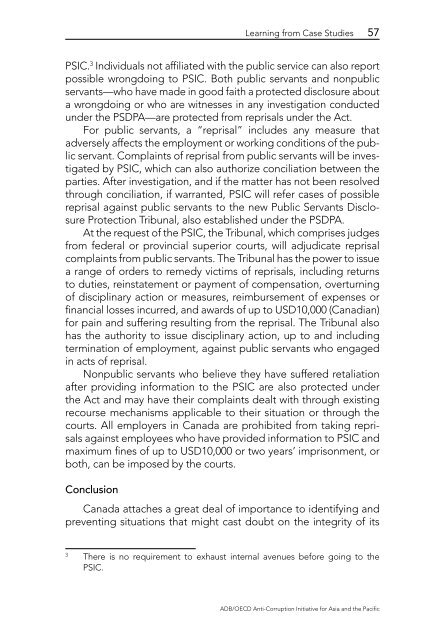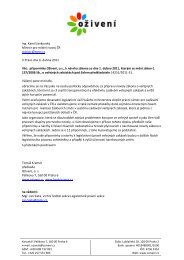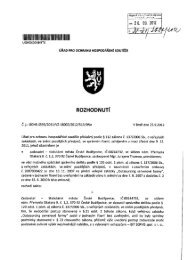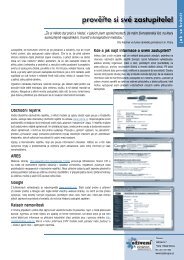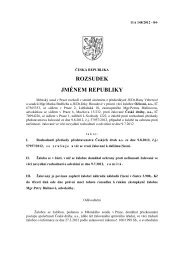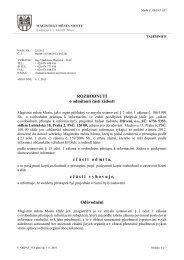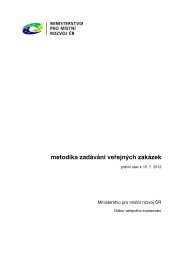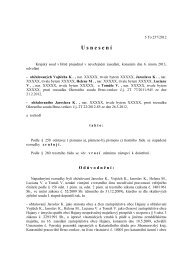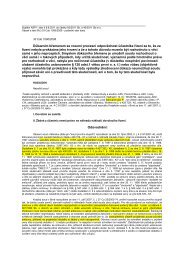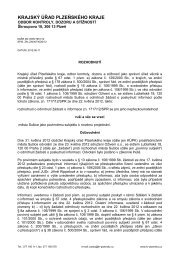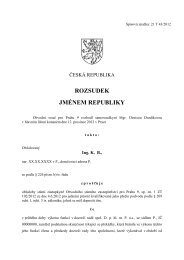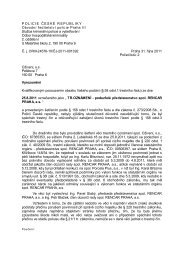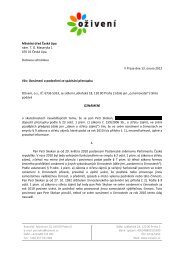Managing Conflict of Interest - Organisation for Economic Co ...
Managing Conflict of Interest - Organisation for Economic Co ...
Managing Conflict of Interest - Organisation for Economic Co ...
Create successful ePaper yourself
Turn your PDF publications into a flip-book with our unique Google optimized e-Paper software.
Learning from Case Studies 57PSIC. 3 Individuals not affiliated with the public service can also reportpossible wrongdoing to PSIC. Both public servants and nonpublicservants—who have made in good faith a protected disclosure abouta wrongdoing or who are witnesses in any investigation conductedunder the PSDPA—are protected from reprisals under the Act.For public servants, a “reprisal” includes any measure thatadversely affects the employment or working conditions <strong>of</strong> the publicservant. <strong>Co</strong>mplaints <strong>of</strong> reprisal from public servants will be investigatedby PSIC, which can also authorize conciliation between theparties. After investigation, and if the matter has not been resolvedthrough conciliation, if warranted, PSIC will refer cases <strong>of</strong> possiblereprisal against public servants to the new Public Servants DisclosureProtection Tribunal, also established under the PSDPA.At the request <strong>of</strong> the PSIC, the Tribunal, which comprises judgesfrom federal or provincial superior courts, will adjudicate reprisalcomplaints from public servants. The Tribunal has the power to issuea range <strong>of</strong> orders to remedy victims <strong>of</strong> reprisals, including returnsto duties, reinstatement or payment <strong>of</strong> compensation, overturning<strong>of</strong> disciplinary action or measures, reimbursement <strong>of</strong> expenses orfinancial losses incurred, and awards <strong>of</strong> up to USD10,000 (Canadian)<strong>for</strong> pain and suffering resulting from the reprisal. The Tribunal alsohas the authority to issue disciplinary action, up to and includingtermination <strong>of</strong> employment, against public servants who engagedin acts <strong>of</strong> reprisal.Nonpublic servants who believe they have suffered retaliationafter providing in<strong>for</strong>mation to the PSIC are also protected underthe Act and may have their complaints dealt with through existingrecourse mechanisms applicable to their situation or through thecourts. All employers in Canada are prohibited from taking reprisalsagainst employees who have provided in<strong>for</strong>mation to PSIC andmaximum fines <strong>of</strong> up to USD10,000 or two years’ imprisonment, orboth, can be imposed by the courts.<strong>Co</strong>nclusionCanada attaches a great deal <strong>of</strong> importance to identifying andpreventing situations that might cast doubt on the integrity <strong>of</strong> its3There is no requirement to exhaust internal avenues be<strong>for</strong>e going to thePSIC.ADB/OECD Anti-<strong>Co</strong>rruption Initiative <strong>for</strong> Asia and the Pacific


